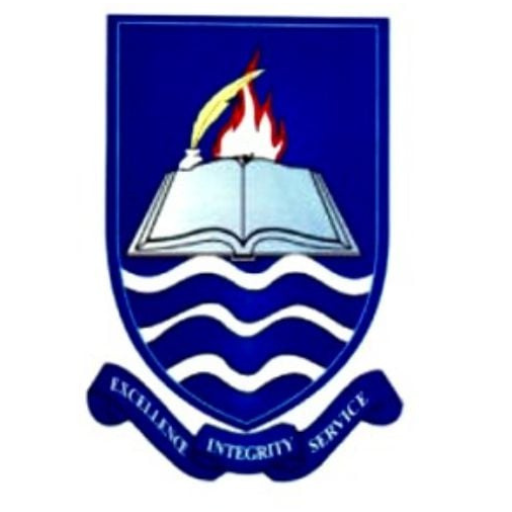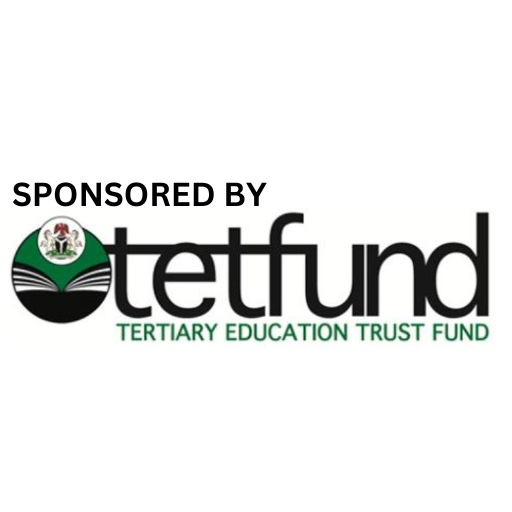Effects of Inquiry and the Ashmore Problem-Solving Model on Performance and Attitudes in Trigonometry Among Senior Secondary School Students in Rivers East Senatorial District, Nigeria
DOI:
https://doi.org/10.63561/fnas-jmse.v6i3.894Keywords:
Inquiry-Based, Ashmore Model, Performance, Attitude, TrigonometryAbstract
The study investigated the effects of Inquiry-Based Learning (IBL) and the Ashmore Model on senior secondary school students’ performance and attitude toward trigonometry in Rivers State, Nigeria. A quasi-experimental pretest-posttest control group design was employed. A multistage sampling technique was used to select 398 SS2 students from six intact classes across six public senior secondary schools. Two instruments, the Trigonometry Performance Test (TPT; reliability = 0.73) and the Students’ Trigonometry Attitude Questionnaire (STAQ; α = 0.78), were used for data collection. Data were analyzed using mean, standard deviation, ANCOVA, and Bonferroni Post Hoc Pairwise Comparison at a 0.05 significance level. Results showed that students taught using IBL and the Ashmore model performed significantly better than those taught with the lecture method (F(2, 394) = 35.15, p < .001, η² = .151), with mean gains of 10.47 (IBL), 9.26 (Ashmore), and 4.10 (Lecture). Attitude scores also favored IBL (mean gain = 11.59) over Ashmore (9.24) and Lecture (5.51) groups (F(2, 394) = 41.89, p < .001, η² = .175). Although males slightly outperformed females in the IBL group and females outperformed males in the Ashmore group, gender differences were not statistically significant (F(1, 265) = 0.102, p = .750). The study recommends the use of interactive and inquiry-driven strategies to enhance students’ engagement, performance, and attitudes in trigonometry.
References
Abdullah, S., & Nor, A. I. (2020). Effect of the 7E instructional strategy on the overall attitude of students in biology in public secondary schools in Adamawa State, Nigeria. Asia Pacific Journal of Educators and Education, 35(2), 171–186. DOI: https://doi.org/10.21315/apjee2020.35.2.10
Abdullahi, U. (2022). Effect of emotional intelligence on performance and retention in trigonometry among senior secondary school students in Katsina State, Nigeria. Global Journal of Health Related Resources, 1(2), 58-64
Adolphus, T., Omeodu, M.D., Naade, Noble, Ubaka, Donald O, & Echenu, F.. (2022). Effect of 7E’s Instructional Approach on Senior Secondary School Student’s Achievement and Interest in Chemical Equilibrium in Delta State.. International Journal of Advance Research And Innovative Ideas In Education, 8(4), 684-694
Adeyanju, M. C. (2020). Students’ performances in mathematics by College of Education students in Nigeria: based strategy. Journal of Science Education and Practice, 7 (5), 66 – 70
Afriansyah, E. A., Herman, T., Turmudi, T., & Dahlan, J. A. (2020). Mendesain soal berbasis masalah untuk kemampuan berpikir kritis matematis calon guru. Mosharafa: Jurnal Pendidikan Matematika, 9(2), 239–250. https://doi.org/10.31980/mosharafa.v9i2.649 DOI: https://doi.org/10.31980/mosharafa.v9i2.649
Agustin, E. M., Solfitri, T., & Anggraini, R. D. (2024). Problem-based learning: Solusi peningkatan kemampuan pemecahan masalah matematis. Mathema Journal, 6(1), 235–244. DOI: https://doi.org/10.33365/jm.v6i1.3490
Akinoso, S. O. (2016). Effect of the concrete-representational-abstract instructional strategy on senior secondary school students' attitudes toward mathematics. IJOTRE Bi-Annual, 17(1), 73–81.
Akpan, E. T., Charles-Ogan, G. I., Onyeka, E. C., & James, D. D. (2022). Application of GeoGebra in modelbased learning and students’ academic performance in solid geometry. International Journal of Science and Research (IJSR), 11(12), 1-6. DOI: https://doi.org/10.21275/SR221110054710
Aladejana, F. (2022). The implications of ICT and NKS for science teaching: Whither Nigeria. Complex Systems, 17, 113–124. DOI: https://doi.org/10.25088/ComplexSystems.17.2.113
Anaduaka, U. S., & Okafor, A. B. (2021). Impact of collaborative learning strategies on students’ performance in Mathematics in Enugu North Local Government Area of Enugu State. Journal of Social Sciences, 9(11), 19-28.
Asanre, A. A. (2024). Motivational factors as determinant of mathematics achievement of students in senior secondary schools. Interdisciplinary Journal of Education Research, 6, 1-9 DOI: https://doi.org/10.38140/ijer-2024.vol6.19
Ashmore, A. D., Frazer, M. J., & Casey, R. J. (1979). Problem-solving and problem-solving network in chemistry. Journal of Chemical Education, 56 (6), 377 DOI: https://doi.org/10.1021/ed056p377
Daniel, I. B., & Ekanem, N. U. (2023). Effects of problem-solving models on students’ achievement in quantitative chemistry problems in senior secondary schools in Uyo, Nigeria. Prestige Journal of Education, 6(2), 31 - 42
Ebisine, E. B. (2017). Effect of problem-solving instructional strategy on the academic performance of Nigerian students in mathematics based on gender. Educational Research Review, 3(1), 23–37.
Ezeanyi, B. C., & Okigbo, E. C. (2021). Common process errors in geometry committed by students from private and public secondary schools in Anambra State, Nigeria. International Journal of Humanities and Social Studies, 9(7), 48–56. DOI: https://doi.org/10.24940/theijhss/2021/v9/i7/HS2107-056
Ekon, E. E., Asuguo, I. M., & Udo, N. M. (2017). Using constructivist-based approach for effective teaching. Science Teachers Association of Nigeria Biology Panel, 131-140.
Fadzil, H. M. (2017). Exploring early childhood preservice teachers' problem-solving skills through a socioscientific inquiry approach. Asia Pacific Forum on Science Learning and Teaching, 18(1). 1-19.
Folake, A. C., & Ibidiran, R. J. (2021). A technique for exploring students' views of the world through mathematical thinking. Journal of Physics Education, 15(6), 376–379. DOI: https://doi.org/10.1088/0031-9120/15/6/312
Gimba, A.O. (2017). Gender differences on students’ academic performance and retention ability among mathematics students of Federal College of Education, Zaria. Journal of mathematics, 2(3), 1-8 DOI: https://doi.org/10.22259/2637-5834.0203001
Grillo, J. (2024). The impact of inquiry structure on students' sense-making in mathematics word problems. Journal of Applied Computational Mathematics, 13(580). https://www.hilarispublisher.com/
Imotor, L A Yohanna, E. M., & Echeipu S. B., (2024) Effect of Rusbult's Problem Solving Strategy on Gender Achievement and Retention of Upper Basic School Students in Trigonometry In Keffi, Nasarawa State. Unizik Journal of Educational Research and Policy Studies, 17(3), 52-61. https//ynujerps.org.
Kusumawardani, D. R., Wardono, & Kartono. (2018). Pentingnya penalaran matematika dalam meningkatkan kemampuan literasi matematika [The importance of mathematical reasoning in improving mathematical literacy skills]. PRISMA, Prosiding Seminar Nasional Matematika, 1(1), 588–595.
Miftah, R., Herman, T., & Kurniawati, L. (2021). Students’ thinking process in solving mathematical literacy problems based on cognitive style. Advances in Mathematics: Scientific Journal, 10(4), 1857–1869. https://doi.org/10.37418/amsj.10.4.2 DOI: https://doi.org/10.37418/amsj.10.4.2
Montague, C. G. (2018). Gender and acquisition of science process skills among secondary school students: Implications for teaching science. Journal of Science Teachers Association of Nigeria, 42(41), 206–219.
Oni, L.O. (2021) Effect of cooperative learning strategy on students’ achievement in and attitude to mathematic. African journal of Science, Technology and Mathematics Education (AJSTME) 6(1) 2330-2336
Onyeka, E. C., & Charles-Ogan, G. I. (2021). Effects of geotrigonometric sets on students’ academic performance and retention in mathematics in Rivers State, Nigeria. Nigeria Journal of Curriculum
Theorists & Educational Technologists, 6(1), 78-92.
Sambo, A. A (2005). Research Methods in Education. Stirling-Horden Publisher (Nig.) Ltd Lagos.
Saputri, V., & Herman, T. (2022). Integrasi STEM dalam pembelajaran matematika: Dampak terhadap kompetensi matematika abad 21. Journal Pembelajaran Matematika Inovatif, 5(1), 247–260.
Simons, M. D., & Wibawa, K. A. (2021). An ethnomethodological analysis of students’ understanding of the concept of trigonometry in a high-stakes examination in South Africa. Beta: Jurnal Tadris Matematika, 14(2), 93-106. https://doi.org/10.20414/betajtm.v14i2.459 DOI: https://doi.org/10.20414/betajtm.v14i2.459
Suleiman, B., Isma’il, A., & Bello, A. (2021). Effects of mastery learning approach on performance in geometry among senior secondary school students in Northwest Zone, Nigeria. Kano Journal of Educational Psychology (KaJEP), 3(1), 175–180.
Sulistyaningsih, D., Purnomo, E. A., & Purnomo. (2021). Polya’s problem solving strategy in trigonometry: An analysis of students' difficulties in problem-solving. Mathematics and Statistics, 9(2), 127–134. https://doi.org/10.13189/ms.2021.0 90206. DOI: https://doi.org/10.13189/ms.2021.090206
Tyata, R. K., Dahal, N., Pant, B. P., & Luitel, B. C. (2021). Exploring project-based teaching for engaging students’ mathematical learning. Mathematics Education Forum Chitwan, 6(6), 30–49. https://doi.org/10.3126/mefc.v6i6.42398 DOI: https://doi.org/10.3126/mefc.v6i6.42398
VanGundy, A. B. (2004). 101 activities for teaching creativity and problem solving. Pfeiffer, West African Examination Council (2022).Chief Examiner’s Report, Lagos, WAEC.







